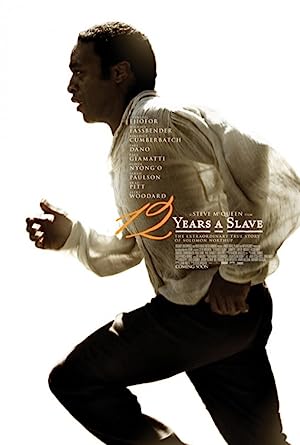A must see: art plus history equals riveting, uncomfortable film experience! The main character, Solomon Northrup, of 12 Years A Slave has 2 options: act like a “man” & die immediately or survive & perhaps one day live & become reunited with family. If you are familiar with Steve McQueen’s Hunger, you will understand that he is a director given more to imagery (pitiless long shots showing torture amidst the joys of daily life or painful closeups of daily objects as churning spokes in a destructive mechanism) than speeches so I was very careful to note who received the most time to verbally express themselves. The movie’s substantial speeches can be divided into Northrup’s experiences with powerful, but subjugated women (his experiences with fellow black men are brief, viscerally poignant & mostly silent, which is a powerful statement itself): Eliza & Patsey. The slaveholder’s version of Christianity cast the slaveholders as having absolute merciless power granted by God (including blaming their troubles on the slaves’ godlessness-I actually laughed out loud at that point-how can property be simultaneously not human AND godless with a duty to worship). In one scene, it is no accident that one slaveholder is reading, “I am the God of…” as the slaveholders have become capricious Greek gods in their marble houses and forcing themselves on the women. The movie presents a competing version of Christianity: a form of worship with no slaveholding intermediary by singing and ultimately rejecting any musical man-made medium between man communicating with God (that comment will make sense after you see the movie as Solomon abandons one form of his voice for another). Mistress Shaw (stunning cameo by…it is a surprise) verbally & visually embodies this alternative: smiling accommodation while speaking through gritted teeth of inner vigilance for a chance to escape injustice & call upon God’s vengeance upon slaveholders. When Solomon is finally rescued, there is no sense of relief as he returns home because of the victimized women left behind. The contrast between his last view of the abused subjugated Patsey & the women of his family is not only jarring, but leaves him an apologetic, haunted shell of his former self-not just because of his horrific experiences, but because of the ones that he had no choice but to leave behind. McQueen’s films are best viewed on the big screen so don’t wait until the film is available on DVD or streaming. The acting is magnificent-even the worse characters are given more pathos & nuance than in the autobiography, which is not an easy thing to do.





